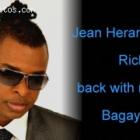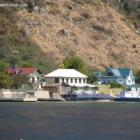ADVERTISEMENT
Photos
Jean Hector Anacacis
Here is a picture of Jean Hector Anacacis.
In the November 28, 2010 election, Anacacis Jean Hector (born July 20th, 1955) was a presidential candidate from the MODEJHA banner (Democratic Movement of Haitian Youth). Three months before the election, while announcing his intention to run in the November presidential election (without naming the banner, but he mentioned it was other than Fanmi Lavalas) in an interview Hector said if he wins the election, he would offer "total guarantee of immunity to Rene Preval and his wife Elisabeth Debrosse'-- from arrest or deportation in charges of corruption and illegal use of public funds. Then he was a Senator of the Ouest Department, he justified his participation in the presidential contest as, because the INITE party failed to select a candidate after 3 weeks long internal fighting and hypocrisy. Despite privileged relations with the then President Rene Préval, Hector was very much critical of Préval's administration. Presently, as a coordinator of the Jude Celestine's LAPEH party (Ligue Alternative pour le Progres et L'Emancipation Haitienne), he is not interested to team up with Préval anymore because he considers the "great master of truth" is not with us for his policy choice.
Kofi Annan on literacy
According to Mr. Kofi Annan, acquiring literacy is an empowering process that "helps millions of people to access knowledge and information which broadens horizons, increases opportunities and creates alternatives for building a better life".
According to Kofi Annan, a Ghanaian diplomat and the seventh Secretary-General of the United Nations (January 1997 to December 2006), "literacy is a bridge from misery to hope." Annan considers it as a defensive wall against poverty, and a step towards development. It is a vehicle for promotion of cultural and national identity and an agent of family health and nutrition. To him, "literacy is the road to progress and the means through which every man, woman and child can realize his or her full potential." It is essential in every society and economy for maintaining sustained social and economic development. Literacy reduces the gender gap and helps to build a nation without any tribal and ethnic differences. "It is a key lever of change and a practical tool of empowerment on each of the three main pillars of sustainable development: economic development, social development and environmental protection."
Dr. Martin Luther King on Education
According to Dr. Martin Luther King, " The function of education is to teach one to think intensively and to think critically".
In 1947, when Martin Luther King, Jr., the most prominent figure of the Civil Rights Movement in the U.S.A was only 18 years old, wrote a short essay in 'The Maroon Tiger', the Morehouse College campus newspaper. The article was titled, "The Purpose of Education." This powerfully worded piece argues that we must not confuse education with knowledge. Education has a two-fold function to perform in the life of man and in society: the one is utility and the other is culture. Education makes a man more efficient in his life and at the same time it helps him to make a culturally rich society. A true education helps a man to think critically and incisively. The purpose of education is not to equip us with the proper instruments of exploitation so that we can forever trample over the masses. Intelligence plus character should be the true goal of education.
Manno Charlemagne and Konpè Filo out of commission
Here is the picture of Manno Charlemagne and Konpè Filo. They both find themselves out of the Presidential commission of Election evaluation
The creation of the Independent Commission on Electoral Evaluation was possible with the consensus of the two leading contending presidential candidates Jude Célestin and Jovenel Moïse. The commission can receive support and advice of national and international experts and it is empowered to define its own methodology and decide its scope and extent of investigations. It would analyze the available information concerning the ballots and proceedings of the vote tabulation centers. As per Prime Minister Evans Paul, the main goal of this Commission would be to create political stability in the country and ensure that the voting process is transparent and free from all biases.
The creation of Commission of Electoral Evaluation
A new commission has been created called Commission of Electoral Evaluation.
Following the continuous accusing pressures from every section of the community, President Martelly, as a way out, has created a five member commission on December 17, 2015, by a presidential decree to evaluate the fairness of the October 25th election. The commission has to report within next 3 days since it starts functioning and may make necessary recommendation for the coming election. The election is set to be held on December 27th, but may postpone until January 2016. However, this "Commission on Electoral Evaluation" was not acceptable to the most opponent parties and platforms like G8, Fanmi Lavalas and Renmen Ayiti. They have denounced the commission as "contrary to the request" of the G8. Renmen Ayiti has called on one of its members Euvonie Georges Auguste, who had been placed on the commission, to withdraw her participation. As per Moïse Jean Charles, a member of the G8, some commission members are close associates of Martelly.
Haiti investment potential
The benefits in investing in a country like Haiti.
On May 18, 2015, the Executive Board of the International Monetary Fund (IMF) commended the Haitian authority for maintaining macroeconomic stability in the aftermath of the devastating earthquake. The authority has even maintained a moderate inflation, positive growth (7.8% in 2012), good debt assessment and adequate international reserves. The country, a WTO member, is now poised for growth. Haiti has significant geological and untapped mining resource potentials. It has a pro-business government, free market economy, low-cost labor and an abundance of hard working work force (because the average age of Haitians is 21.4 years). It is strategically located near the world's largest economy (USA) and two emerging countries Brazil and Colombia. The country has good access for maritime trade. Haiti simply needs capital in varieties of forms-- it might be cultural, social, intellectual, experimental, financial or material.
Jean Baden Dubois, new BRH governor
Here is a picture of Jean Baden Dubois who became the new BRH governor, replacing Charles Castel.
By a Presidential Order dated 23 November 2015, which has been released on December 17, 2015, John Baden Dubois became the new Governor of the Bank of the Republic of Haiti, replacing Charles Castel. Prior to this appointment, Jean Baden Dubois was acting as the CEO of the bank. In 1991, Charles Castel joined BRH as an advisor to then Governor of the bank. Thereafter, serving in various capacities, namely General Counsel, Director of Banking Supervision and General Director, he became the Governor of the bank in 2007 and served till December 2015. Castel was instrumental in spearheading the government's successful privatization program. As per the presidential decree, the reconstitution of the board was necessary "Considering the temporary dysfunction of the Legislative Power" and "to ensure the regular functioning of institutions and government agencies". The new council of BRH would be composed as follows: Jean Baden Dubois: Governor; Georges Henry Fils: Vice-Governor; Georgette Jean Louis: Director General; Kurdy Larèche: Member.
The G8 and Fanmi Lavalas
Here is The G8 and Fanmi Lavalas
The G8, Fanmi Lavalas and other opposition parties are not satisfied with the announcement of 'Commission of Electoral Evaluation' by the Martelly administration. They, along with other independent observers and U.S media like 'The New York Times', are of opinion that the October election in Haiti, to choose a successor to President Michel Martelly, has been marred by so much ballot tampering, illegal voting and other abuses that it could be denounced as 'illegitimate'. Some of the observers are of opinion that if G8 could find a consensus and form an alliance with Fanmi Lavalas, and all the opposition can stand up as one man against Martelly's handpicked successor Jovenel Moses in the December 27th election, they would be able to prevent the forceful imposition of Jovenel Moses as Martelly's successor.
Mambo Euvonie Georges Auguste and Jean-Henry Céant
Here is a picture of Mambo Euvonie Georges Auguste and Jean-Henry Céant
On Wednesday, December 16, 2015, the Executive members of the Commission of Electoral Evaluation have appointed Euvonie Georges Auguste as a member of 'Commission of Electoral Evaluation' created by the President and Evans administration. However, the political platform ' Renmen Ayiti' to which she belongs has denounced this appointment and has asked Mambo Euvonie, to renounce her participation in the commission, as the formation of this Commission is contrary to the request of the G8 group which called for an independent commission of inquiry and a transitional government, to properly investigate the fraud allegations of the October election and to hold new and fair elections. Jean Henry Ceant was a member of the G8 and the presidential candidate in the last election under ' Renmen Ayiti' banner.
Sister Dona found innocent after 42 months in prison
Here is a picture of Sister Dona. She was found innocent after 42 months in prison.
On December 17, 2015, Dieudonne Pierre Bélizaire, better known as Sister Dona, founder of the orphanage of 'Sisters Redemptive of Nazareth", has been cleared of kidnapping charges in a criminal court in Port-au-Prince, and was released immediately. Sister Dona was in the Civil Prison of Petion-ville since 21 June 2012 in connection with the kidnapping of a child named 'Raphaël Chenet' from her orphanage, a crime which she vehemently denied from the beginning. During the crime, as per report, she was not even in Haiti. As per Kenscoff Peace Court records, Djimmy Mémé, one employee of the orphanage, had confessed the crime on July 18, 2011; he took $2,000 from a couple (Péguy Blanc and Christine) who wanted to adopt Raphaël Chenet. Djimmy picked up the child from the orphanage and handed the child to Péguy Blanc. Most of these facts were confirmed by Djimmy's cell phone records and were noted in the Registry records of the Kenscoff Peace Court. However, Djimmy Mémé, the main criminal of the crime despite his confessions and facts, was released by the Substitute Commissioner of the Government, Rodriguez for unknown reasons.

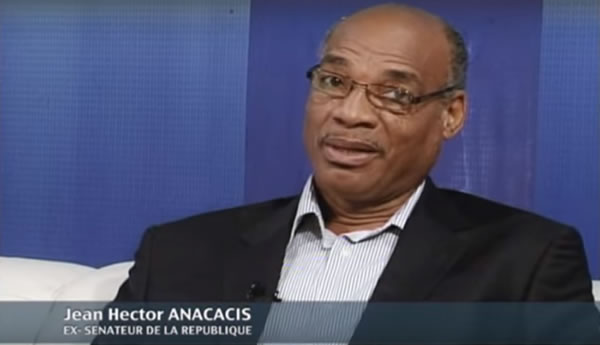
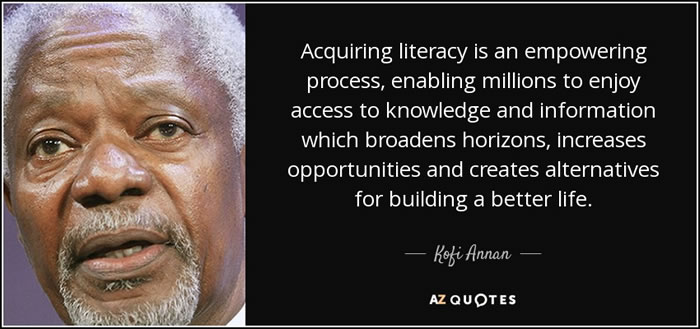
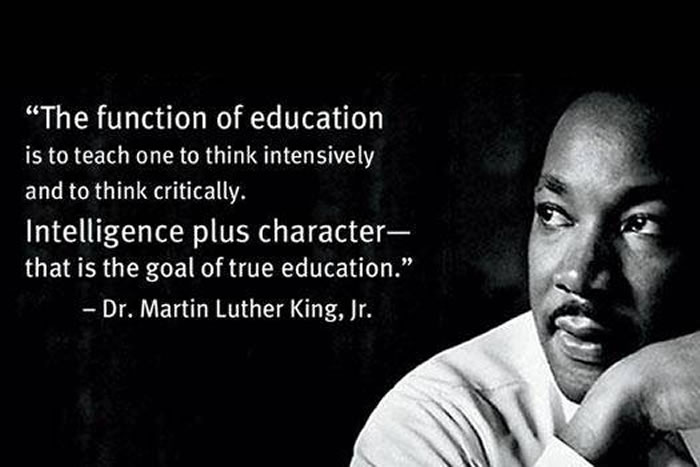
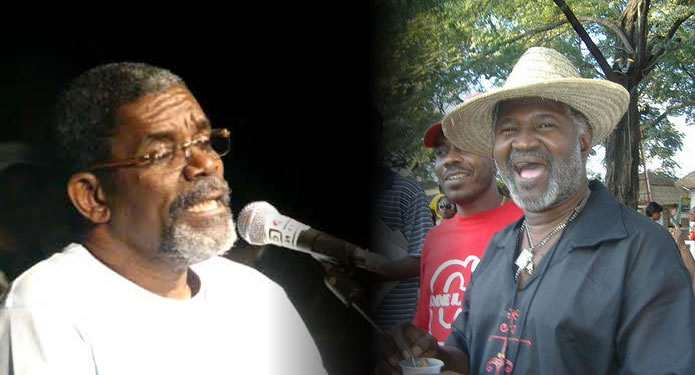

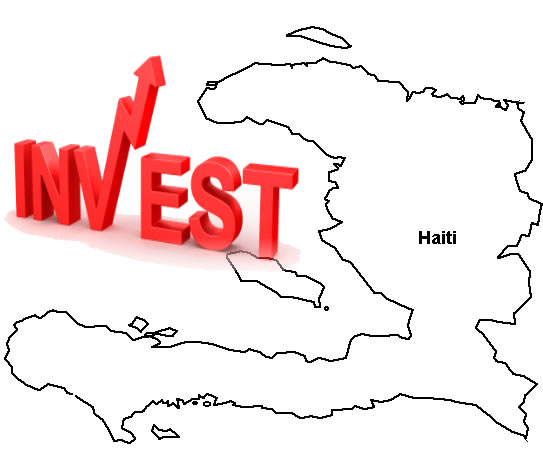
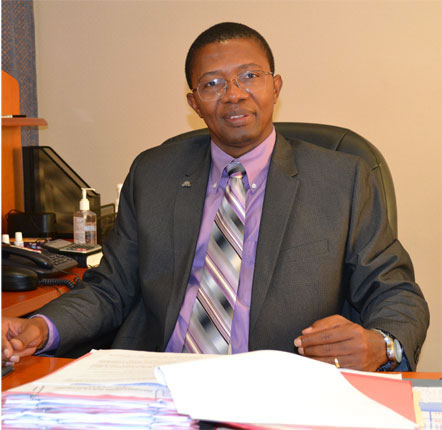
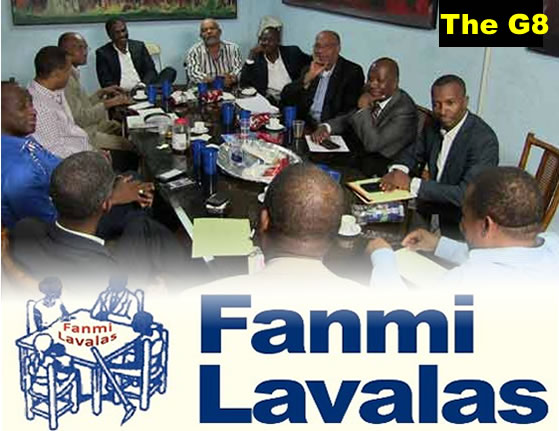
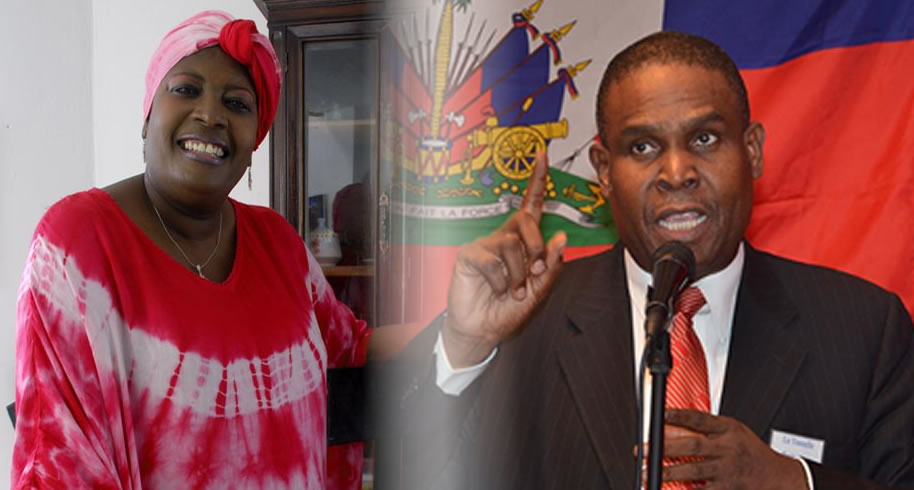
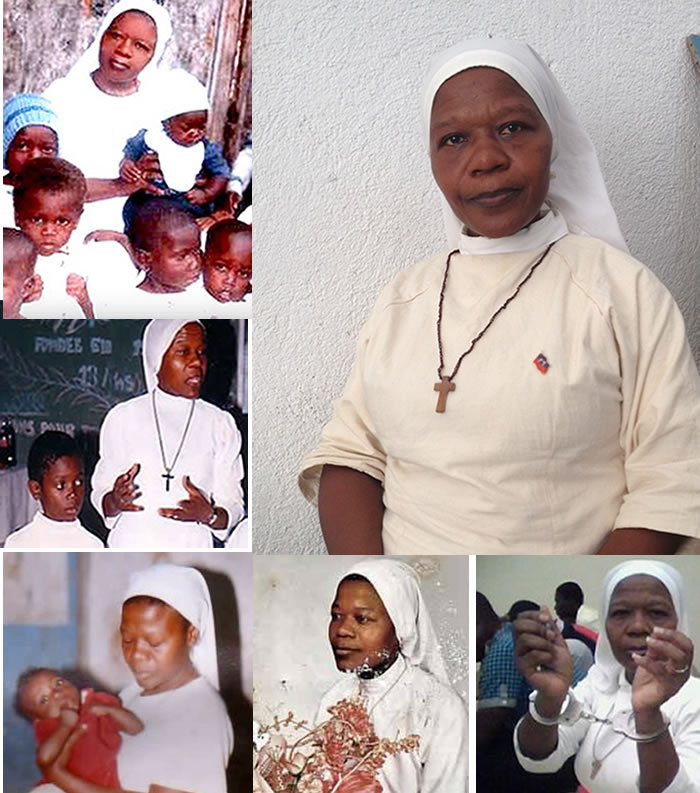
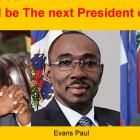 Who will be the next president of Haiti?
Who will be the next president of Haiti?  Hotel Beck in Cap-Haitien, Haiti
Hotel Beck in Cap-Haitien, Haiti  François Nicolas Duvalier Potential Candidate for President of...
François Nicolas Duvalier Potential Candidate for President of...  Paul Eugène Magloire, born in Quartier Morin
Paul Eugène Magloire, born in Quartier Morin 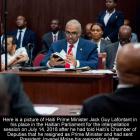 Jack Guy Lafontant resigns as Haiti Prime Minister
Jack Guy Lafontant resigns as Haiti Prime Minister  Delimart Plaza, Delmas 32, Port-au-Prince, Haiti being looted
Delimart Plaza, Delmas 32, Port-au-Prince, Haiti being looted 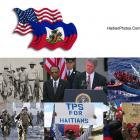 Haitians, the second largest black immigrant group in the US
Haitians, the second largest black immigrant group in the US 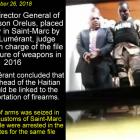 Former PNH Chief, Godson Orelus, arrested for illegal arm...
Former PNH Chief, Godson Orelus, arrested for illegal arm... 
